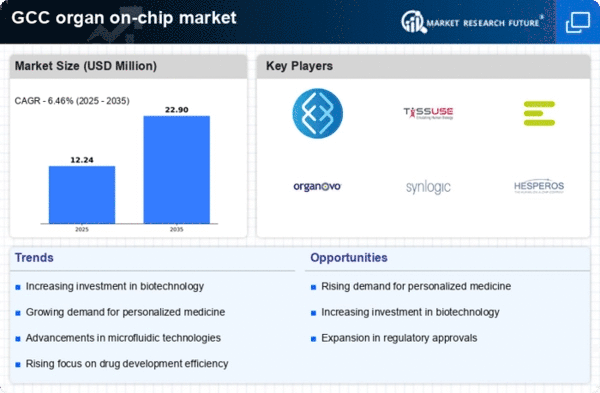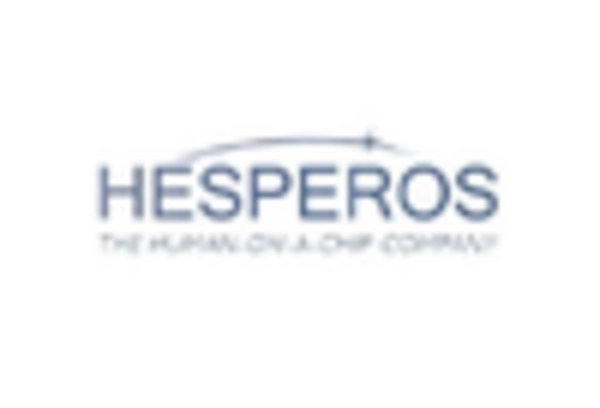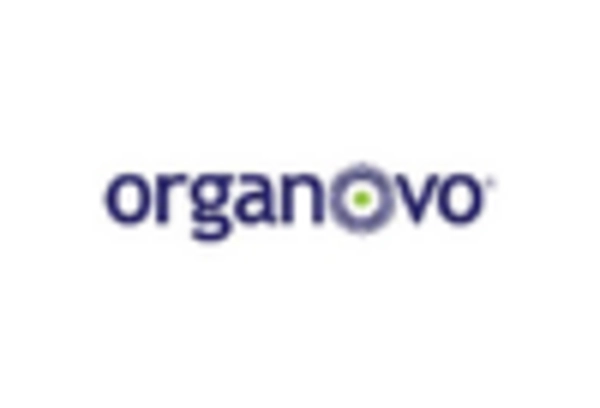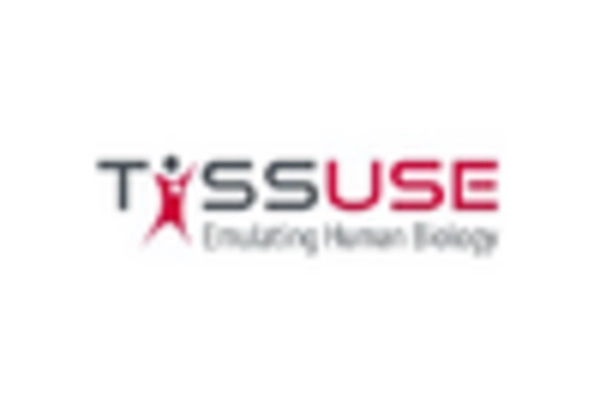Rising Demand for Personalized Medicine
The organ on-chip market is experiencing a notable surge in demand for personalized medicine within the GCC region. This trend is driven by the increasing recognition of the limitations of traditional drug testing methods, which often fail to account for individual variability in drug responses. As healthcare systems shift towards more tailored treatment approaches, the organ on-chip technology offers a promising solution by enabling the simulation of human organ functions in a controlled environment. This allows for more accurate predictions of drug efficacy and safety, potentially reducing the time and cost associated with clinical trials. The GCC healthcare market is projected to reach $100 billion by 2025, indicating a substantial opportunity for the organ on-chip market to play a pivotal role in advancing personalized therapies.
Emerging Partnerships and Collaborations
Emerging partnerships and collaborations within the GCC are acting as a catalyst for the organ on-chip market. Academic institutions, research organizations, and industry players are increasingly joining forces to leverage their respective expertise in developing innovative organ-on-chip solutions. These collaborations facilitate knowledge exchange and resource sharing, which are crucial for advancing the technology. For instance, partnerships between universities and biotech firms are leading to the development of novel organ-on-chip models that can address specific health challenges prevalent in the region. The GCC's strategic focus on fostering innovation ecosystems is likely to enhance the growth of the organ on-chip market, as collaborative efforts can accelerate research and development timelines. As these partnerships continue to evolve, they may unlock new opportunities for commercialization and application of organ-on-chip technologies.
Growing Focus on Reducing Animal Testing
The organ on-chip market is gaining traction due to the increasing emphasis on reducing animal testing in research and drug development. Regulatory bodies in the GCC are progressively advocating for alternative testing methods that align with ethical standards and scientific advancements. Organ-on-chip technology presents a viable alternative, offering a more humane and potentially more accurate means of assessing drug safety and efficacy. As public awareness regarding animal welfare rises, pharmaceutical companies are under pressure to adopt innovative solutions that minimize reliance on animal models. This shift is likely to drive demand for organ-on-chip systems, as they provide a platform for in vitro testing that can replicate human physiological responses. The GCC's commitment to ethical research practices may further bolster the organ on-chip market, positioning it as a key player in the future of biomedical research.
Increased Investment in Biotech Research
Investment in biotechnology research is a significant driver for the organ on-chip market in the GCC. Governments and private entities are increasingly allocating funds to support innovative research initiatives aimed at enhancing healthcare outcomes. The GCC region has seen a rise in biotech startups and research institutions focusing on organ-on-chip technologies, which are viewed as essential tools for drug development and disease modeling. In 2023, the GCC biotech sector was valued at approximately $10 billion, with expectations of continued growth. This influx of capital not only fosters innovation but also encourages collaboration between academia and industry, further propelling the organ on-chip market forward. As research capabilities expand, the potential applications of organ-on-chip technology are likely to broaden, enhancing its relevance in the healthcare landscape.
Advancements in Microfabrication Techniques
Advancements in microfabrication techniques are significantly influencing the organ on-chip market. The development of sophisticated manufacturing processes allows for the creation of highly complex and functional organ-on-chip systems that can mimic human organ behavior with greater precision. In the GCC, research institutions are increasingly adopting these advanced techniques to enhance the capabilities of organ-on-chip devices. This includes the integration of microfluidics, sensors, and biomaterials, which collectively improve the performance and reliability of these systems. As the technology matures, the potential applications of organ-on-chip devices are expanding, ranging from drug testing to disease modeling. The market for microfabrication in the GCC is projected to grow at a CAGR of 15% over the next five years, indicating a robust environment for the organ on-chip market to thrive.
















